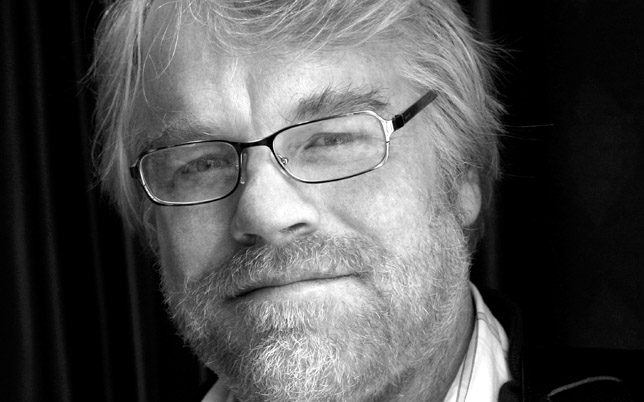
- Industry
Remembering Philip Seymour Hoffman
Before Capote, he was considered a character actor with a devoted but limited following. His scene-stealing roles in The Talented Mr. Ripley and Boogie Nights made audiences take note. But other performances went largely unnoticed. It wasn’t until his schoolboy chums (director Bennett Miller and writer Dan Futterman) suggested Philip Seymour Hoffman play Truman Capote that he became a household name.
“I was in shock. I’m 5’9” 220 lb. man. And when they offered me the role, I was really big. My girlfriend was pregnant so we both got huge together. I was like 240 million lbs. I was literally this roly-poly guy.” How much weight did he actually lose? “I got as thin as I could and still have a fleshy face.” The sacrifice earned him every possible accolade, including a Golden Globe and an Oscar, except one. Ironically, the New York Critics opted for Heath Ledger (for Brokeback Mountain) who also died prematurely of a drug overdose.
The one aspect of fame that made Hoffman uncomfortable was meeting the press and public. To get him to present the Best Actor award at the Golden Globes – I was president at the time – I had to enlist the help of Tom Hanks (they were shooting Charlie Wilson’s War.) Even then, he showed up only to read the nominations and present the award. After that he was gone.
Over the years he had worked with the likes of Paul Thomas Anderson, the Coen Brothers, Cameron Crowe, Todd Solondz, and Anthony Minghella. At his press conferences, you got the impression he’d rather be somewhere else. At his press conference for, Before the Devil Knows You’re Dead, in 2008 Hoffman talked about his acting process. “When you’re working on a part you don’t think about yourself, you think about other people’s lives, humanity in general. It’s not therapy. I don’t think, ‘Omigod I am going through this thing.’ I’m an actor. I have to do this job. I look at my life to inform what I do, but I don’t depend on that.”
Did becoming a father (he had three children) change his life? “Your priorities of working and time and scheduling change. Now it’s all about spending as much time with them as you can. When you play with a child, that day can be anything. Children want to do anything; so I’ll play with my kids in many many different ways depending on what strikes their fancy. All that kids want is for you to be there for them, focused. And that’s good stuff.”
During that Oscar frenzy, what was it like going to every award show and winning every time? “It was surreal. I went through a lot of different feelings. Up until that point I never really won any acting awards. I had been nominated for a lot of things but never won. Oh it was like, I got to have a year where I experience that. And that was a good thing for me because now that I’ve experienced it, it will be a good reference for the rest of my life.”
Besides acting in movies, Hoffman also managed a New York theatre company, the Labyrinth. Where did he find the time? “I’m just a director there. We work at the Public Theatre in New York. I direct a play almost every year. Once every couple of years I act in a play. When I’m not making films that’s what I like to do. I actually spend more times doing that than making films.”
He remembered the first time he wanted to be an actor. “It was when I was eleven or twelve, when my mom first took me to the theatre. It was this regional theatre in Rochester (N.Y.) where I grew up. I saw a lot of plays, not musicals or anything like that. I saw Arthur Miller, new plays, mature stuff, and l just loved that. I could not get enough of it. I thought it was the most incredible thing in the world, but I had no inclination about wanting to do it. I just wanted to be an audience member. I thought, oh God if every week of my life I could come and sit in the theatre and watch a play, things would be good for me. Only when I was older in high school did I start auditioning for plays. And that was because I had a neck injury and I couldn’t wrestle anymore or play football, the sports I was doing. Later at seventeen, I realized this is something I actually can do; so I went to college for it. But there’s a big part of me that still enjoys just watching. For me great live theatre is still the best thing of all.”
It’s an understatement to say we enjoyed watching him. Apart for the Golden Globe as Best Actor Drama that he won in 2006 as Capote, Philip Seymour Hoffman also earned four other richly deserved Golden Globe nominations: Best Actor in a Comedy for Savages and Best Supporting Actor for Charlie Wilson’s War (both in 2008), Best Supporting Actor for Doubt the following year and again in 2013 for his amazing work in PT Anderson’s The Master. He will be sorely missed by every film lover including all of us at the HFPA.
Phil Berk

